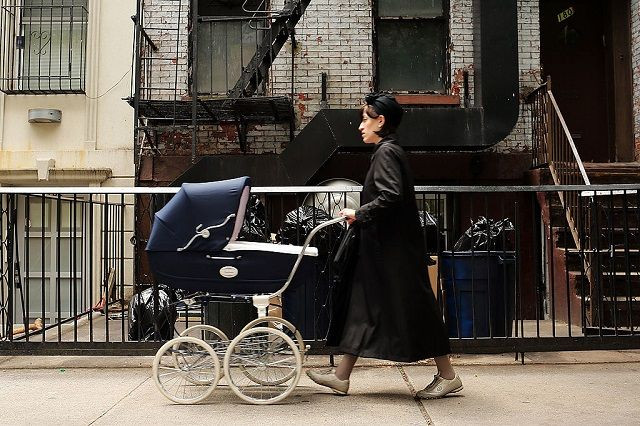Chickenpox In The City: Outbreak Hits Mostly Unvaccinated Orthodox Jewish Children In Brooklyn

A small Orthodox Jewish community nestled within one of New York’s most popular neighborhoods is feeling the chickenpox itch.
On Monday, the New York City Health Department confirmed an outbreak of chickenpox, more formally known as varicella, among Orthodox Jewish children in Williamsburg, Brooklyn. So far, 75 cases have been seen since March, with 72 percent occurring in unvaccinated children and a smaller percentage in those who hadn’t yet received their two shots. The median age of the kids is 3, though at least one case was seen in someone as old as 10.
The varicella-zoster virus, a cousin of the viruses responsible for causing both types of herpes, causes chickenpox. It typically leads to brief but particularly annoying rashes and blisters (the titular pox) all over the body for two to three weeks, as well as fever, fatigue, and a low appetite. On rare occasions it can also cause pneumonia, birth complications in pregnant women, and even death. The older you are when you get chickenpox, the worse the experience tends to be. It can also occasionally recur in later adulthood as the much more painful disease shingles, though it doesn’t seem to occur in vaccinated adults.
Since the mid 1990s — when the vaccine became mandatory for children entering public grade school — chicken pox rates have predictably plummeted. According to the Centers for Disease Control and Prevention, the vaccine prevents 3.5 million cases, 9,000 hospitalizations, and about 100 deaths caused by the illness every year. And despite the ongoing ruckus made by anti-vaccination activists, 90 percent of children from the ages of 19 to 35 months have gotten their first dose of the vaccine as of 2010. The second dose is recommended at 4 to 6 years old.
Whether a similar anti-vaccination sentiment explains the current outbreak is difficult to say, however. Prominent rabbis within more restrictive sects of the Orthodox community have spoken out against vaccination, and a Brooklyn measles outbreak in 2013 centered around two Orthodox Jewish communities in the neighborhoods of Borough Park and Williamsburg.
But other voices in the community have loudly rebuffed these vaccine skeptics, and there’s seemingly no Jewish law that discourages vaccination. In 2013, a representative from the New York City Department of Health and Mental Hygiene told Jewish publication Forward that 96 percent of Brooklyn students who attended yeshivas, the traditional form of education for Orthodox children, had received their necessary shots. More likely than not, then, the outbreak is the result of an isolated pocket of resistance.
Because chickenpox is highly contagious though, health officials are advising medical providers throughout the city to stay on high alert. And to make sure that their patients and staff are fully up to date on their own shots. While the chickenpox vaccine isn’t foolproof, two doses are about 90 percent effective at preventing the disease. Those suspected of contracting chickenpox, even if they haven’t yet shown any symptoms, can also be given the vaccine up to three days after they were first exposed.
Published by Medicaldaily.com



























